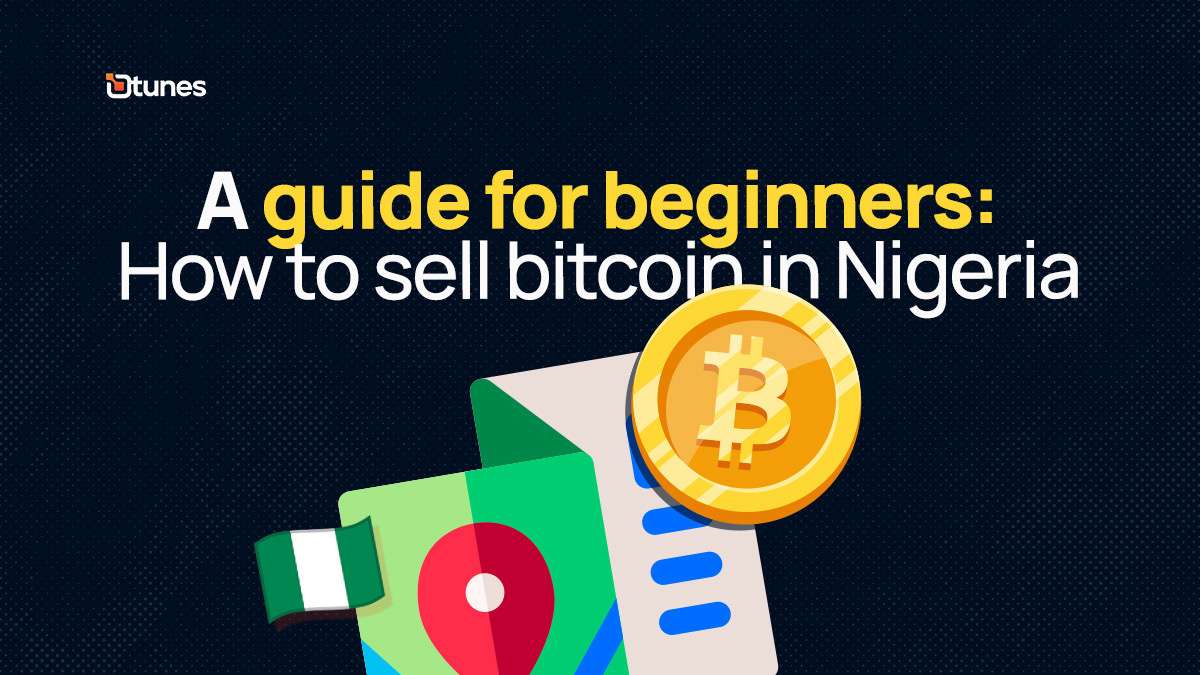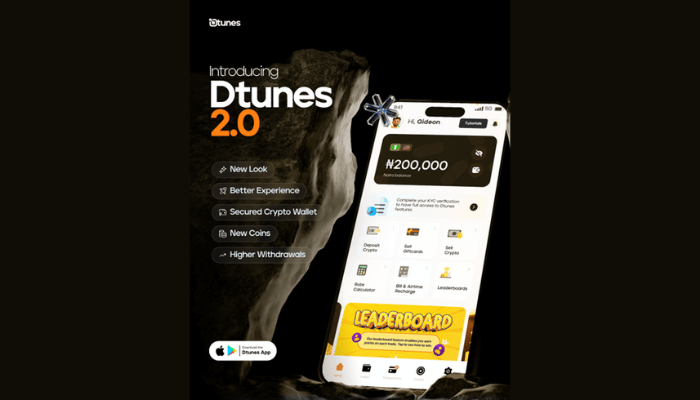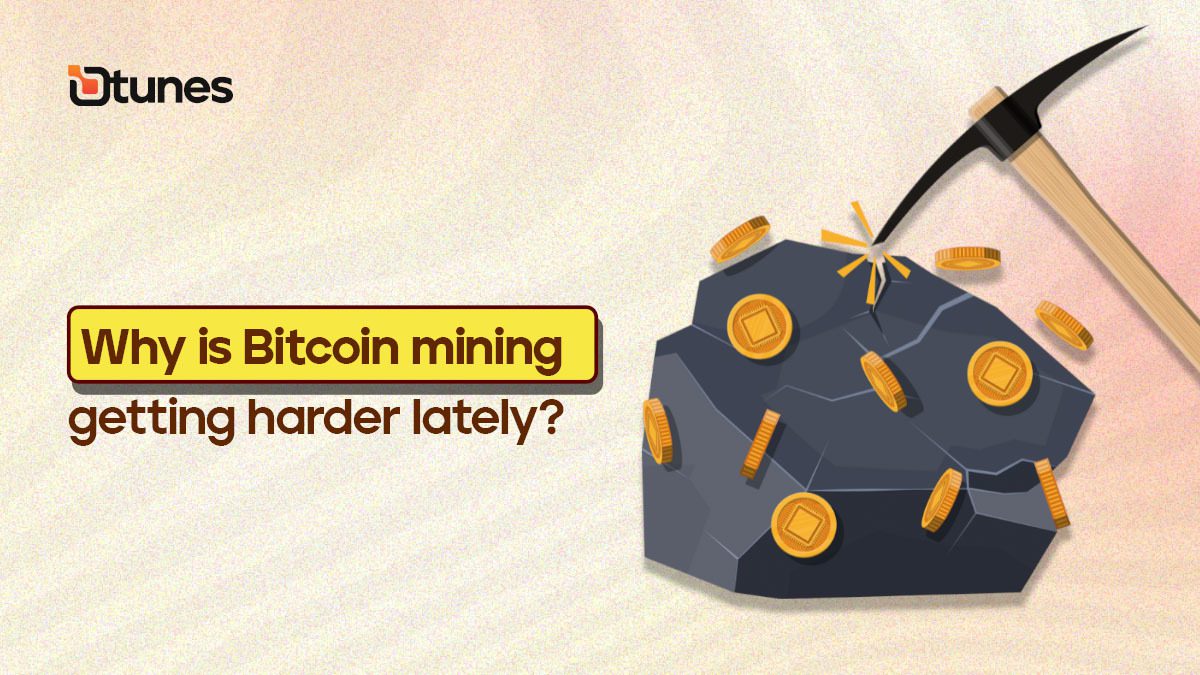
How to Sell Bitcoin in Nigeria: Selling BTC Instantly
Selling Bitcoin in Nigeria isn’t really the problem anymore. Most people already know how to sell BTC, the real struggle is selling it fast, safely, and without unnecessary back-and-forth.
Between P2P delays, endless buyer excuses, frozen chats, and the familiar “network issues” story, what should be a simple transaction often turns into a waiting game. At this point, many Nigerians aren’t looking for fancy trading strategies; they just want to send their Bitcoin, receive naira, and move on with their day.
If that sounds like you, you’re exactly where you need to be.
If you want to sell Bitcoin in Nigeria without negotiating with strangers, without waiting on buyer confirmation, and without guessing rates, then using a direct crypto off-ramp like Dtunes is currently the cleanest option.
This guide breaks down how to sell Bitcoin in Nigeria instantly, what actually works in today’s market, and why Dtunes has quietly become the most reliable option right now especially for anyone who wants to avoid P2P stress altogether.
Key Takeaways
- Bitcoin selling in Nigeria doesn’t have to be complicated.
- The rate you see and where you sell makes a bigger difference than most people realise.
- There’s a simpler way to convert BTC to naira without P2P stress.
What Is Bitcoin, and Why Is It Popular in Nigeria?

Bitcoin (BTC) is the OG cryptocurrency, a digital form of money that operates on a technology called blockchain. Unlike traditional money, Bitcoin isn’t controlled by any bank or government. Instead, it’s decentralized, secure, and can be sent anywhere in the world instantly.
In Nigeria, Bitcoin’s popularity has skyrocketed. Many Nigerians use BTC to protect their savings against inflation, send money internationally, or invest in something new. Because of its growing use, there’s a big demand for platforms that let you buy and sell Bitcoin easily.
Why sell Bitcoin and Cryptocurrencies in Nigeria?
Trading lets you buy and sell BTC, USDT, and other coins to make a profit. Many Nigerians use crypto trading to hedge against inflation or as an investment. The Nigerian crypto market is vibrant, with many platforms and apps available on Google Play and the Apple Store to start your trading experience anywhere, anytime.
Is It Legal to Sell Bitcoin in Nigeria?
Selling Bitcoin in Nigeria is legal. The Nigerian government recognizes cryptocurrencies as digital assets and regulates them under theInvestments and Securities Act (ISA) 2025. The Nigerian Securities and Exchange Commission (SEC) oversees crypto trading, which means buying and selling BTC is allowed—as long as you use licensed crypto platforms.
Banks now support crypto transactions, so you can sell Bitcoin and get your money sent directly to your bank account safely. That said, always keep an eye on regulations because this space moves fast.
Why Nigerians Are Selling Bitcoin More Than Ever
Bitcoin has long moved past the hype stage in Nigeria. Today, it’s not just a buzzword or a “get-rich-quick” idea, it’s a real financial tool that people use to manage money, protect savings, and move value around the country or even internationally.
Nigerians sell BTC for a variety of practical reasons like locking in profit when prices spike, converting crypto to naira for everyday spending, hedging against inflation, funding businesses or personal projects and moving value faster than traditional banking allows.
When it’s time to convert your Bitcoin to naira, the platform you pick matters far more than the coin itself. One wrong choice can mean delays, lost funds, or a frustrating back-and-forth with buyers, which is exactly why Dtunes has become the go-to solution for Nigerians who value speed, security, and simplicity.
Here are things to consider before converting bitcoin to naira in Nigeria
Two Ways to Sell Bitcoin in Nigeria
1. Peer-to-Peer (P2P) Platforms
Peer-to-Peer platforms let you sell Bitcoin to another person, rather than a company or service. On paper, it seems straightforward, but in practice, it can be time-consuming and stressful. Here’s what usually happens:
- Waiting for a buyer: You might post your BTC for sale and then sit around, hoping someone is ready to buy at your rate. Sometimes it takes hours or even days.
- Negotiating rates: Buyers often want to haggle, which means you have to keep adjusting prices or explaining why your rate is fair.
- Confirming payments manually: Once a buyer claims to have paid, you need to check your bank account or payment method before releasing BTC, which is tedious and prone to errors.
- Dealing with delays, disputes, or silence: It’s not uncommon for buyers to disappear, make excuses, or dispute payments, leaving you stuck in a frustrating back-and-forth.
While P2P works, it requires a lot of effort and patience, which is why many Nigerians are looking for faster, safer alternatives.
2. Direct Crypto Off-Ramps
Direct crypto off-ramps, like Dtunes allow you to sell Bitcoin directly to the platform instead of another person. This removes almost all the headaches of P2P trading. Here’s how it works:
- No waiting for buyers: You don’t depend on anyone else being online or ready to buy. The platform is always ready to receive your BTC.
- No negotiations or haggling: The rate is displayed clearly upfront, so there’s no need to argue or compromise.
- Instant crediting to your wallet: You send BTC, the naira equivalent is immediately credited to your Dtunes wallet and you can withdraw straight to your bank account.
- Simplicity and peace of mind: No chats, no disputes, no “network issues” excuses. Just fast, secure, and predictable transactions.
This is why more and more Nigerians are moving away from P2P and choosing platforms like Dtunes.
What Makes a Good Crypto Platform for Nigerians?
- Security: Look for 2FA (two-factor authentication) and SSL encryption.
- User-Friendly Interface: A simple app or website makes trading easy, especially for beginners.
- Instant Payment: Getting your naira quickly is important.
- Customer Support: Responsive service can save you headaches if anything goes wrong.
- Regulated: Choose platforms licensed by the Nigerian SEC or reputable international exchanges.
Best Platforms to Sell Bitcoin in Nigeria
| Platform | Selling Method | Payout Speed | P2P Stress | Rate Transparency | Nigerian Focus |
| Dtunes | Direct off-ramp | Minutes after confirmation | None | Live rate shown upfront | Built for Nigerians |
| Binance P2P | Peer-to-peer | Depends on buyer | High | Varies by trader | Global |
| Paxful | Peer-to-peer | Depends on buyer | High | Negotiated | Global |
| Yellow Card | Direct | Moderate | None | Fixed | Africa-wide |
| Busha | Direct | Moderate | None | Fixed | Nigeria |
Dtunes Outshines Other Platforms Naturally
What sets Dtunes apart for many Nigerian Bitcoin sellers is how predictable the entire selling process feels. Instead of waiting on a buyer, monitoring chats, or confirming bank alerts manually, the platform allows you to sell Bitcoin directly and move on. Once your BTC receives the required network confirmations, your naira balance is credited and ready for withdrawal. In a market where timing affects value, that reliability makes a real difference.
Transparency also plays a big role. Dtunes shows you the BTC-to-naira rate before you commit to a trade, and that rate is exactly what gets applied. There are no hidden deductions, sudden adjustments, or last-minute surprises. Combined with strong security measures like two-factor authentication, transaction monitoring, and controlled withdrawals, the platform removes many of the risks that often come with peer-to-peer trading.
Beyond the technical side, Dtunes is clearly designed for Nigerian users. The app is easy to navigate whether you’re selling Bitcoin for the first time or doing it regularly. Local bank withdrawals work smoothly, customer support understands the realities of Nigerian banking, and the instant-sell model eliminates the emotional and time cost of P2P transactions. Taken together, Dtunes fits how most Nigerians actually want to sell Bitcoin today: fast, clear, and without unnecessary stress.
How to Sell Bitcoin in Nigeria

This is what the process actually looks like in real life.
- Download the Dtunes app from Google Play Store or the App Store and create your account using your email. The setup is quick and doesn’t feel like paperwork.
- Add your Nigerian bank details and set a secure PIN. This PIN authorises withdrawals and keeps your account locked down.
- From the dashboard, tap “Trade Crypto” and select Bitcoin (BTC) as the asset you want to sell.
- Enter the amount of BTC you’re converting. The app shows you the naira value immediately.
- Copy the BTC wallet address provided and send your Bitcoin from your external wallet.
- Once the blockchain confirms the transaction, your naira is credited to your Dtunes wallet.
- Withdraw straight to your bank account and that’s all.
How Long Does It Take to Sell BTC on Dtunes?
Most of the waiting time has nothing to do with Dtunes, it’s about Bitcoin network confirmation.
Once your BTC is confirmed on the blockchain, conversion happens next and quickly, your naira value reflects shortly after and instant withdrawal to your bank follows.
Delays usually happen only when the wrong wallet address is used, network fees are too low or the sender rushes the process.
Tips for Selling Bitcoin at the Best Rate in Nigeria
- Compare Rates Across Platforms
Check exchange rates on different platforms before selling. Even a small difference can mean more naira in your pocket. Dtunes has the best rates, so no need to stress. - Sell in Small Batches
If the Bitcoin price is volatile, selling smaller amounts over time can help you get better average rates. - Watch Out for Fees
Every platform charges fees. Dtunes offers low fees, so you keep more of your money.
Common Questions About Selling Bitcoin in Nigeria
Q: Can I sell Bitcoin instantly?
A: Yes, many platforms pay instantly or within minutes once the transaction is confirmed.
Q: How do I convert Bitcoin to cash?
A: Sell your BTC on a crypto platform and withdraw the Naira directly to your bank. Then, withdraw cash from your bank as usual.
Q: Are there limits on how much BTC I can sell?
A: Limits vary by platform and your verification level. Higher verification usually means higher limits.
Q: What fees should I expect?
A: Expect platform fees (usually 0.5% to 1.5%) and network transaction fees for moving BTC on the blockchain.
Q: How safe is peer-to-peer trading?
A: P2P is safe if you use escrow and trade on reputable platforms. Always verify the buyer’s reputation.
Final Thoughts
Selling Bitcoin in Nigeria doesn’t have to be complicated. With the right crypto platform, a secure Bitcoin wallet, and a bit of market knowledge, you can sell BTC for Naira at the best rate and get paid instantly.
Stay updated on Nigeria’s crypto regulations and always prioritize security. Whether you’re selling your first Bitcoin or managing a portfolio, this guide should help you make confident, smart decisions.
Quick Recap Table: How to Sell Bitcoin in Nigeria
| Step | What to Do | Tip |
|---|---|---|
| Create Wallet | Choose app wallet like Trust Wallet | Keep your private keys safe |
| Pick Platform | Select trusted platform (Yellow Card, Busha) | Compare exchange rates first |
| Verify Account | Complete KYC by uploading ID | Use official documents |
| Transfer BTC to Platform | Send BTC from your wallet | Double-check the wallet address |
| Sell Bitcoin | Place sell order for BTC | Check fees and best rate |
| Get Paid in Naira | Withdraw to your Nigerian bank account | Use instant withdrawal if possible |



![[elementor-template id="6995"]](https://dtunes.ng/blog/wp-content/uploads/2024/08/Latest-DtunesjArtboard-1-copy-41-768x432.jpg)
